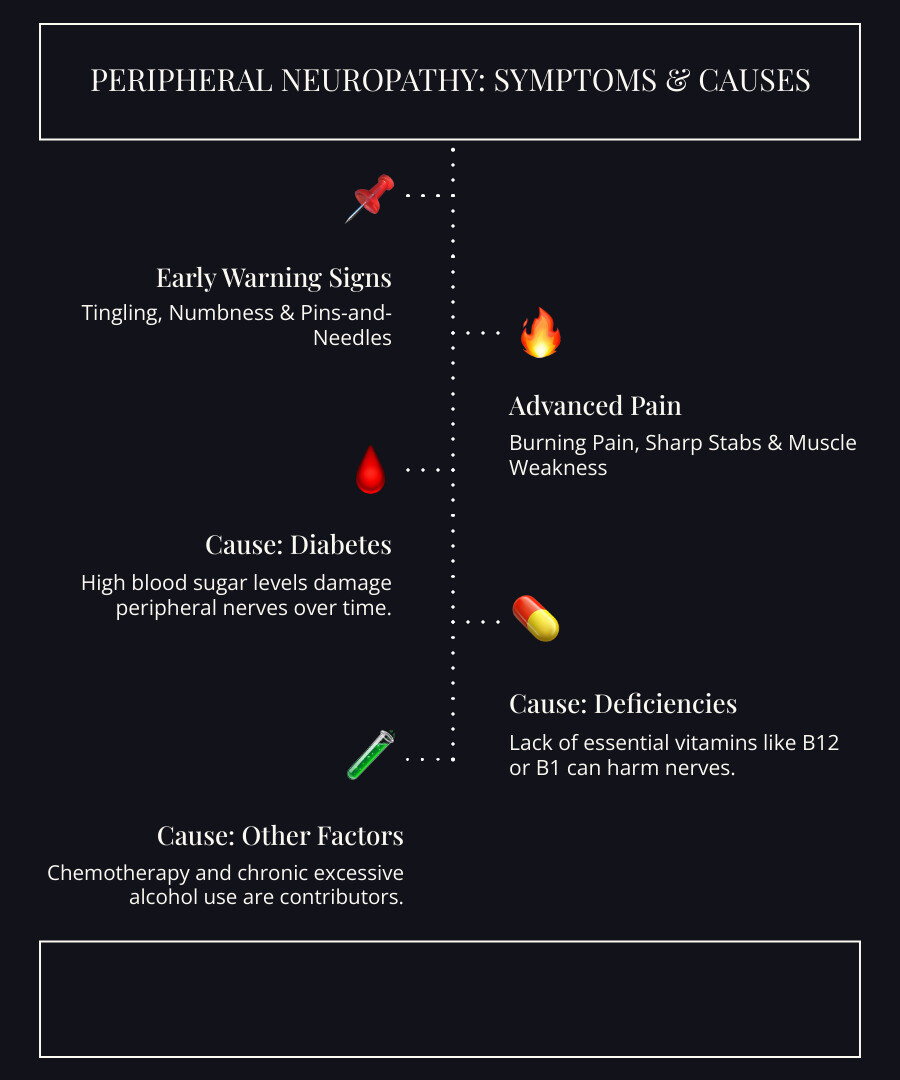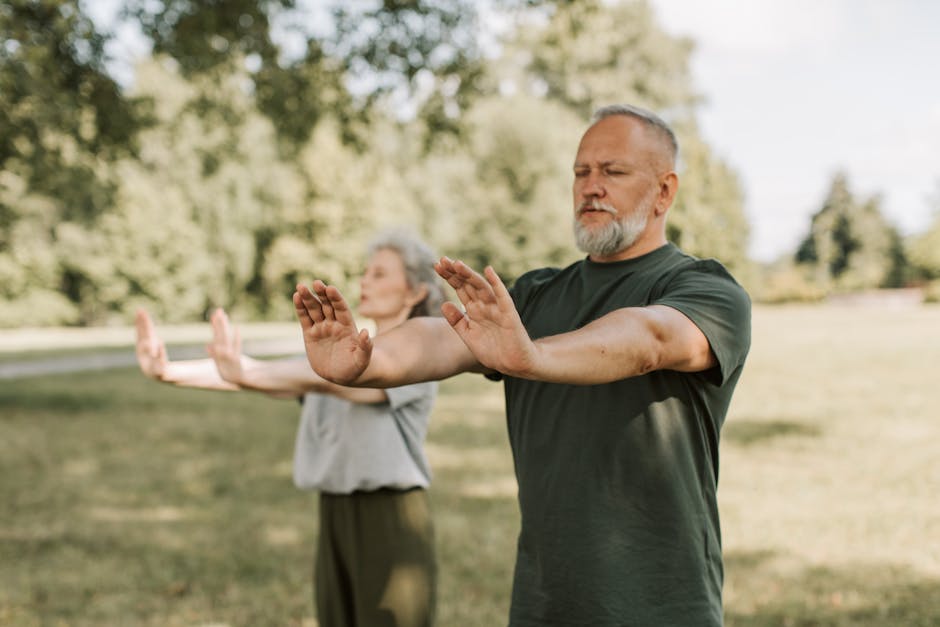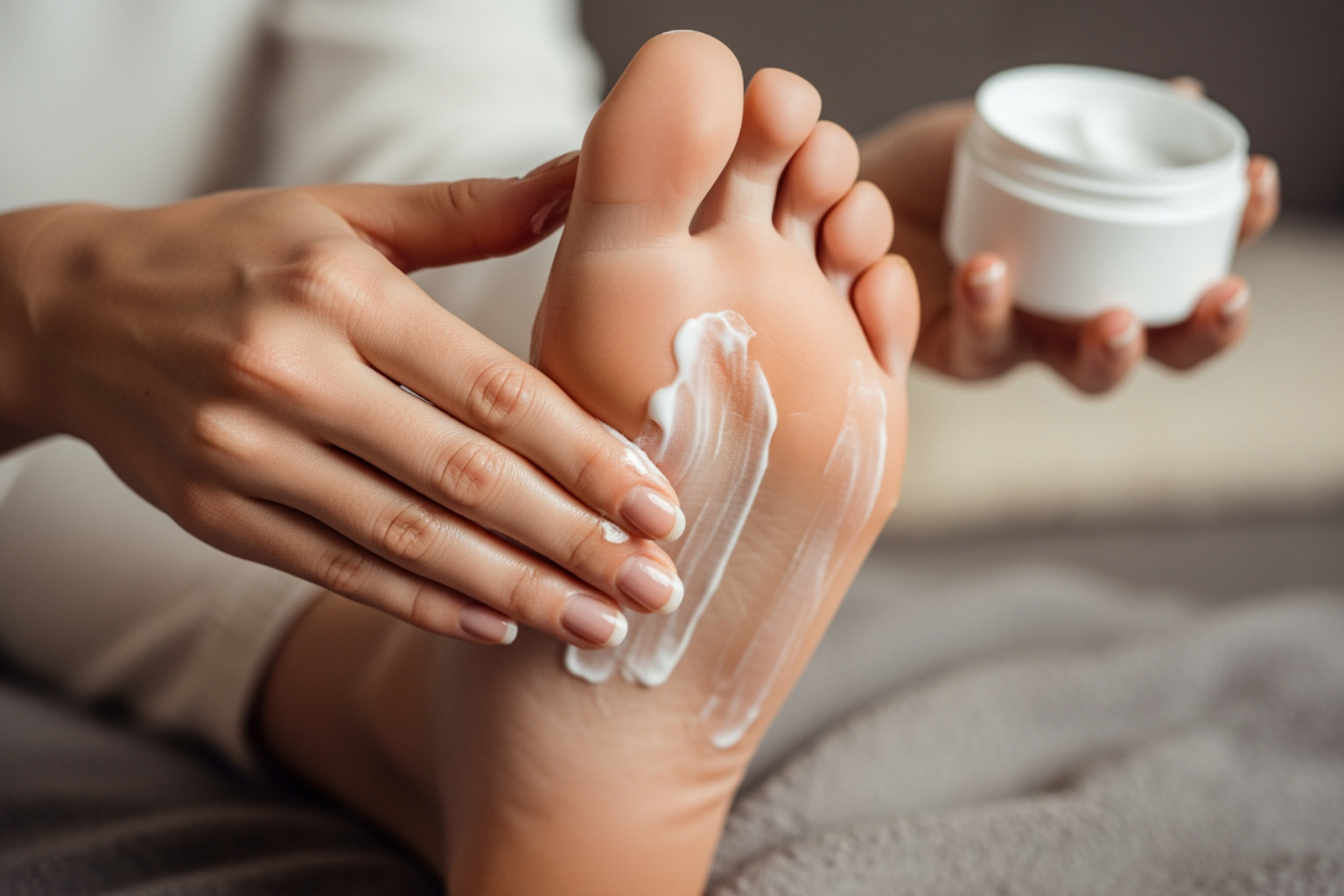Why Finding Real Neuropathy Relief Matters Now
Neuropathy relief is achievable through a combination of lifestyle changes, topical treatments, natural remedies, and medical interventions. The most effective approaches include:
- Managing blood sugar levels for diabetes-related neuropathy.
- Using topical creams with ingredients like menthol, aloe, and urea for fast-acting comfort.
- Taking B vitamins (especially B12, B1, and B6) to support nerve health.
- Exercising regularly with low-impact activities like walking or yoga.
- Applying warm compresses or taking warm baths to soothe symptoms.
Peripheral neuropathy affects over 30 million Americans, causing debilitating symptoms like burning pain, tingling, numbness, and weakness. This nerve pain can steal your comfort and freedom, making everyday activities feel impossible. The good news is that you don't have to accept neuropathy as your new normal. While nerve damage from conditions like diabetes, vitamin deficiencies, or chemotherapy can feel permanent, many people find significant relief by addressing the root causes and protecting existing nerve fibers.

Peripheral neuropathy is damage to the nerves outside the brain and spinal cord. These nerves handle sensation, movement, and automatic functions. When damaged, communication breaks down, leading to a range of symptoms. Depending on the nerves affected (motor, sensory, or autonomic), you might experience:
- Persistent tingling or numbness ("pins and needles").
- Sharp, burning, or throbbing pain.
- Extreme sensitivity to touch.
- Muscle weakness and impaired balance.
- Issues with blood pressure, digestion, or sweating.
The most common cause is diabetes, where high blood sugar damages nerve fibers. Other major triggers include vitamin deficiencies (particularly vitamin B12 deficiency), chemotherapy, toxin exposure, excessive alcohol use, and certain infections. This damage profoundly impacts daily life, leading to loss of independence, chronic fatigue, anxiety, and depression. Finding comprehensive strategies for neuropathy relief is essential for reclaiming your physical and emotional well-being.
Hack 1: Master Your Lifestyle with Diet and Exercise

Your daily choices can be as powerful as any medication for neuropathy relief. Simple lifestyle adjustments can make a world of difference in managing nerve pain.
If you have diabetes, managing your blood sugar is the single most important step to protect your nerves. A balanced diet rich in vegetables, fruits, whole grains, and lean proteins actively shields your nerves from further harm. For more on this, see our guide on diabetic neuropathy.
Equally important is avoiding substances that harm nerves. Alcohol can directly damage peripheral nerves, while smoking narrows blood vessels, starving nerves of the oxygen they need to function and heal. Quitting smoking and limiting alcohol can lead to noticeable improvements in symptoms.
The Role of Vitamins and Minerals
Think of vitamins and minerals as the repair crew for your nerves. Deficiencies can directly cause or worsen neuropathy.
- Vitamin B12 is essential for maintaining the protective coating on nerve fibers.
- Vitamin B1 (thiamine) and Vitamin E support nerve structure and protect against damage.
- Copper and magnesium are crucial minerals for a healthy nervous system.
Be cautious with Vitamin B6—while essential, too much can cause neuropathy symptoms. It's a delicate balance. Before starting any supplement, get your levels tested. A blood test can reveal the most common deficiencies and help your doctor create a targeted plan. While a balanced diet is the best source, supplementation under medical supervision may be necessary.
How Exercise Can Reduce Nerve Pain
Even if movement is painful, the right kind of exercise can be transformative for neuropathy relief. We're not talking about high-intensity workouts, but gentle, consistent movement.
Low-impact activities like walking, swimming, yoga, and Tai Chi are ideal. They achieve several key goals:
- Improve blood flow, delivering oxygen and nutrients to damaged nerves.
- Help regulate blood sugar levels, preventing further damage.
- Strengthen core muscles and improve balance, reducing the risk of falls.
Research confirms that exercise can reduce or slow nerve damage while decreasing pain. Start small with 20-30 minutes of gentle activity most days of the week. Consistency is more important than intensity. Listen to your body and focus on giving your nerves the conditions they need to heal.
Hack 2: Soothe Nerves at Home with Topical & Mind-Body Therapies

When nerve pain strikes, some of the most effective strategies for neuropathy relief can be found right at home. These methods address both physical discomfort and the stress that accompanies chronic pain.
A warm bath can be powerful medicine, increasing blood circulation to nourish damaged nerves and easing muscle tension. Research shows that a warm saltwater bath may be particularly beneficial for painful diabetic neuropathy. Caution: If you have sensory loss, always test the water temperature with your elbow or a thermometer to prevent burns.
Stress reduction is also key, as it can intensify your perception of pain. Combining physical therapies with mind-body approaches creates a more comprehensive path to relief.
Finding the Perfect Neuropathy Pain Cream for Relief
For moments when you need immediate relief, a high-quality topical treatment is invaluable. Unlike oral medications that travel through your entire system, topical creams deliver active ingredients directly to the source of your pain. This means fast-acting, targeted relief with fewer systemic side effects.
The key is finding a cream with proven ingredients:
- Menthol provides a cooling sensation that distracts your nervous system from pain signals.
- Aloe Vera offers powerful anti-inflammatory properties to soothe irritated skin.
- Urea helps other ingredients penetrate deeper while moisturizing dry, fragile skin.
When you apply a cream like our Neuropasil nerve pain relief cream, you can feel the soothing sensation go to work in minutes. It's the ideal solution for unexpected flare-ups, providing comfort without the side effects of some oral medications. Learn more in The Complete Guide to Nerve Pain Relief Creams.
Using Meditation to Decrease Pain Intensity
Chronic nerve pain is mentally and emotionally exhausting. The resulting stress can, in turn, make your physical pain feel worse. This is where meditation becomes a powerful tool for neuropathy relief.
Research shows that meditation can help decrease pain intensity by lowering stress hormones and changing how your brain processes pain signals. Mindfulness teaches you to observe pain without letting it control you, creating mental space between you and the sensation.
You don't need to be an expert. Starting with just five minutes a day using a guided meditation app can make a significant difference. Like physical exercise, the benefits of meditation grow with consistent practice, helping to calm your nervous system and create a better environment for healing.
Hack 3: Explore Natural Remedies for Neuropathy Relief

For centuries, nature has provided powerful healing agents. For neuropathy relief, certain herbal remedies and essential oils show significant promise in managing nerve pain, often by providing anti-inflammatory properties. Research on medicinal herbs for pain relief has found that many plants can help ease neuropathic symptoms.
However, "natural" does not always mean risk-free. Always consult your healthcare professional before adding any new herbal remedy to your routine, as it could interact with medications.
Potent Herbs and Essential Oils
Several natural options have gained attention from researchers for their pain-relieving properties:
- Cayenne Pepper (Capsaicin): Found in Capsicum annuum, topical capsaicin works by depleting Substance P, a chemical that transmits pain signals to the brain. Over time, this can lead to significant pain reduction. Benefits of Capsicum annuum have been well-documented.
- Turmeric (Curcumin): The active compound, curcumin, is a potent anti-inflammatory and antioxidant that can help reduce nerve pain and swelling.
- Rosemary: This herb has both anti-inflammatory and analgesic effects. When used as an essential oil, it can soothe discomfort and improve circulation.
Other promising essential oils for neuropathy relief include:
- Lavender Oil: Known for its calming properties that can ease both physical and emotional stress.
- Peppermint Oil: Provides a cooling sensation, similar to menthol, for immediate comfort.
- Bergamot and Nutmeg Oils: Also possess properties that may help manage pain.
Important Safety Note: Essential oils are highly concentrated and must be diluted in a carrier oil (like coconut or jojoba oil) before being applied to the skin. A 2-3% dilution is a safe starting point. Always perform a patch test on a small area of skin first to check for irritation.
Our all-natural relief formula harnesses the power of ingredients like aloe and menthol, combining traditional wisdom with modern science to deliver targeted relief.
Hack 4: Understand Advanced and Professional Treatment Options

When lifestyle changes and home remedies aren't enough, seeking professional medical help is a crucial step toward achieving meaningful neuropathy relief. A good specialist will work to identify the root cause of your neuropathy and create a personalized treatment plan.
Look for a healthcare partner who listens to your concerns, explains your options clearly, and views you as a partner in your healing journey. Don't hesitate to ask about their experience and approach to treatment.
Conventional Medical Treatments
Professional care typically focuses on treating the underlying cause of neuropathy while managing your symptoms. This often involves a combination of medications and therapies.
-
Medications:
- Anti-seizure drugs like gabapentin and pregabalin can calm overactive nerves.
- Antidepressants, such as amitriptyline and duloxetine, can reduce pain by altering how the brain processes pain signals.
- Topical treatments, including prescription-strength lidocaine or capsaicin, offer localized relief without systemic side effects.
Physical Therapy: A skilled therapist can design exercises to improve muscle strength, balance, and coordination. This can dramatically improve daily function and confidence.
-
Advanced Therapies: For some patients, more advanced options may be considered.
- Electrical nerve stimulation (including TENS) uses gentle electrical currents to relieve pain.
- Scrambler therapy sends non-pain messages to the brain to override pain signals.
- Spinal cord stimulation involves an implantable device that blocks pain signals before they reach the brain.
- Plasma exchange and intravenous immune globulin (IVIg) may be used for neuropathy caused by autoimmune conditions.
It is essential to always consult your healthcare provider for personalized care. They can assess your specific condition and guide you through the benefits and risks of each option. The diagnosis and treatment options from Mayo Clinic provide a good overview for discussions with your doctor. Professional treatment expands your toolkit, working best when combined with the other strategies discussed in this guide.
Hack 5: Build a Personalized Neuropathy Relief Plan
There is no single magic bullet for neuropathy. The most effective neuropathy relief comes from a plan that is uniquely yours—one that evolves with your needs and responds to your body's signals.
Think of yourself as a detective investigating your own condition. A personalized plan involves a few key steps:
Track Your Symptoms: Use a notebook or app to log your symptoms. Note when they flare up, what you were doing, and what you ate. Identifying patterns is the first step to gaining control.
Identify Your Triggers: Do certain foods, activities, or even stress levels make your pain worse? Understanding your personal triggers helps you avoid or manage them more effectively.
Set Meaningful Goals: Focus on small, achievable victories. This could be sleeping through the night, walking to the mailbox without pain, or enjoying a social outing. These goals keep you motivated and help you measure real progress.
Combine Strategies: The real power comes from layering the approaches in this article. Use lifestyle changes as your foundation, add topical treatments like Neuropasil for immediate comfort, and incorporate natural remedies or mind-body practices that work for you.
Partner with Your Doctor: Your healthcare provider is a key ally. Share your symptom log, discuss what's working and what isn't, and be open to adjusting your medical treatments. The best outcomes occur when you and your medical team work together.
Your plan is a living document. As you learn more about your body, you will naturally refine your strategies. Stay curious, stay committed, and remember that every small improvement is a victory. For more insights to support your journey, Explore more articles on neuropathy on our blog.
Frequently Asked Questions about Neuropathy
Living with neuropathy raises many questions. Here are concise answers to some of the most common concerns we hear from people seeking neuropathy relief.
What is the fastest way to get neuropathy relief?
For immediate, localized comfort, topical creams containing menthol are often the fastest-acting solution. They work within minutes to create a cooling sensation that interrupts pain signals at the source. For long-term relief, this should be combined with strategies that address the root cause. If you have diabetic neuropathy, strict blood sugar management is crucial for reducing symptoms over time. Over-the-counter pain relievers may offer temporary help, but always consult a doctor before regular use.
Can nerve damage from neuropathy be reversed?
Reversibility depends entirely on the cause and extent of the nerve damage. In some cases, if the underlying cause is treated early (like a vitamin B12 deficiency), nerves can heal and symptoms may improve or resolve. However, for many chronic or advanced cases, complete reversal is not realistic. In these situations, treatment focuses on managing symptoms, preventing further damage, and improving quality of life. Many people achieve remarkable improvements in function and comfort even without a full reversal.
What should you not do if you have neuropathy?
Avoiding certain actions is just as important as taking the right ones. To protect your nerves and prevent complications, you should not:
- Ignore your symptoms. Early tingling and numbness are warning signs. Seek a diagnosis promptly to improve your long-term outlook.
- Consume excessive alcohol. Alcohol is a neurotoxin that can cause and worsen neuropathy.
- Smoke. Smoking constricts blood vessels, reducing blood flow and oxygen to your already-damaged nerves.
- Walk barefoot. If you have numbness, you may not feel small cuts or injuries, leading to a high risk of infection.
- Expose your feet to extreme temperatures. You may not be able to feel if water is dangerously hot or if your feet are getting frostbitten.
- Self-medicate without guidance. Supplements and herbs can be helpful, but they can also interact with medications or be harmful in the wrong dose. Always consult your doctor.
As noted by the National Institute of Neurological Disorders and Stroke, many of these factors are known to worsen neuropathy symptoms.
Conclusion: Reclaiming Your Life from Nerve Pain
Living with peripheral neuropathy can be a daily struggle, but neuropathy relief is not just a possibility—it's within your reach. The journey to relief is built on a combination of powerful, personalized strategies.
By mastering your lifestyle with diet and exercise, you create a foundation for nerve health. By using a high-quality topical cream like Neuropasil for immediate comfort, you can manage painful flare-ups. By incorporating mind-body practices and exploring natural remedies, you add more tools to your relief kit. And by working with your healthcare team on advanced treatments, you ensure all bases are covered.
No single hack works in isolation. The real breakthrough happens when you build a personalized plan that combines these strategies to fit your unique needs. You deserve to live a life with less pain, better sleep, and more freedom. The journey starts with a single step—whether it's trying a proven topical solution, scheduling a doctor's appointment, or simply deciding that you will not let nerve pain define your life.
We are here to support you with effective, science-backed solutions. Explore more articles on neuropathy to continue learning and take the next step toward reclaiming your life from nerve pain.
References
The information we've shared throughout this guide to neuropathy relief is grounded in solid scientific research and clinical studies. We believe in transparency and want you to have access to the sources that inform our recommendations, so you can explore them further and feel confident in the strategies we've discussed.
Bulut Çelik S, et al. (2017) conducted research on the evaluation of neuropathic pain in smokers, highlighting how smoking affects nerve health and pain perception. You can read their findings at https://pubmed.ncbi.nlm.nih.gov/29039152/.
Catalfamo LM, et al. (2022) provided a comprehensive review of the utility of Capsicum annuum L. (cayenne pepper) in internal medicine and dentistry, demonstrating its pain-relieving properties when applied topically. Their work is available at https://www.ncbi.nlm.nih.gov/pmc/articles/PMC9517535/.
Dimitrova A, et al. (2017) conducted a systematic review and meta-analysis on acupuncture for the treatment of peripheral neuropathy, exploring its potential benefits. Their research can be found at https://www.ncbi.nlm.nih.gov/pmc/articles/PMC5359694/.
Forouzanfar F, et al. (2018) reviewed medicinal herbs in the treatment of neuropathic pain, examining the anti-inflammatory and analgesic properties of various natural remedies we've discussed. Access their comprehensive review at https://www.ncbi.nlm.nih.gov/pmc/articles/PMC5960749/.
Hilton L, et al. (2017) performed a systematic review and meta-analysis on mindfulness meditation for chronic pain, supporting our recommendation of meditation as a powerful tool for pain management. Their study is published at https://academic.oup.com/abm/article/51/2/199/4564147.
Leitzelar BN, et al. (2021) provided a general overview of preclinical and clinical research on exercise and neuropathic pain, demonstrating how regular physical activity can reduce or slow nerve damage. You can read their comprehensive overview at https://sportsmedicine-open.springeropen.com/articles/10.1186/s40798-021-00307-9.
Reza Vakilinia S, et al. (2020) conducted a randomized clinical trial evaluating the efficacy of warm salt water foot-bath on patients with painful diabetic peripheral neuropathy, which informed our recommendation for this simple home remedy. Their findings are available at https://pubmed.ncbi.nlm.nih.gov/32147053/.
We encourage you to explore these studies if you'd like to dive deeper into the science behind effective neuropathy relief. Knowledge is power, and understanding the research helps you make informed decisions about your health journey.














